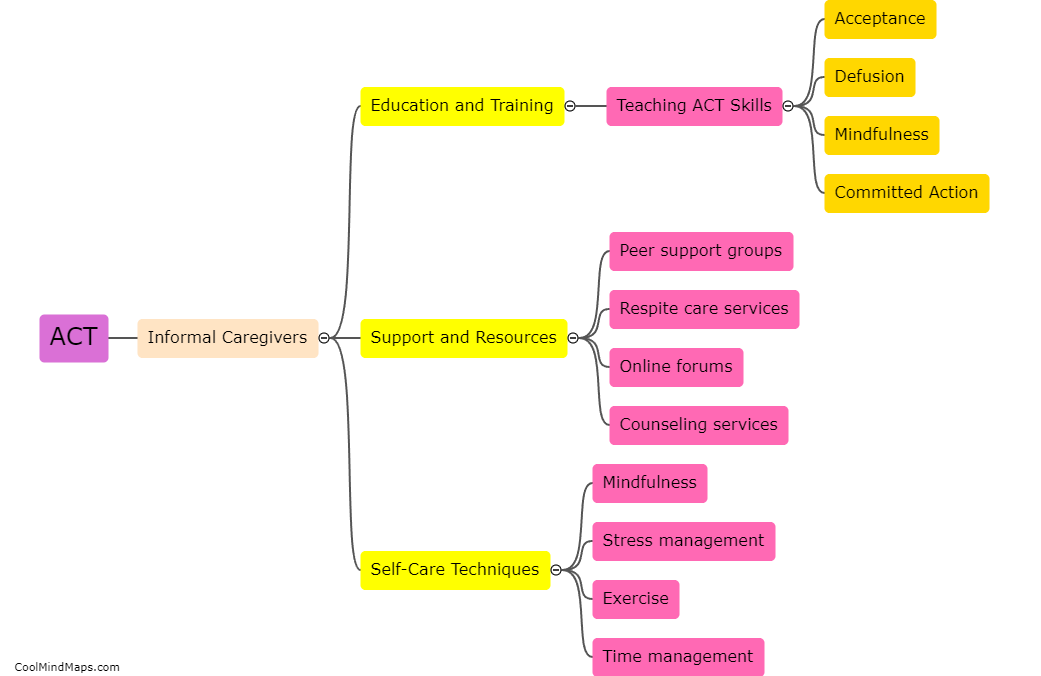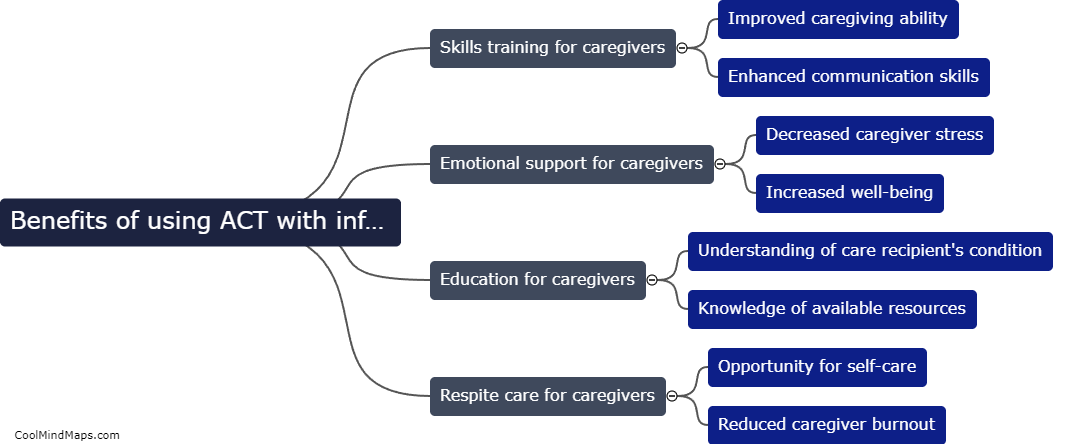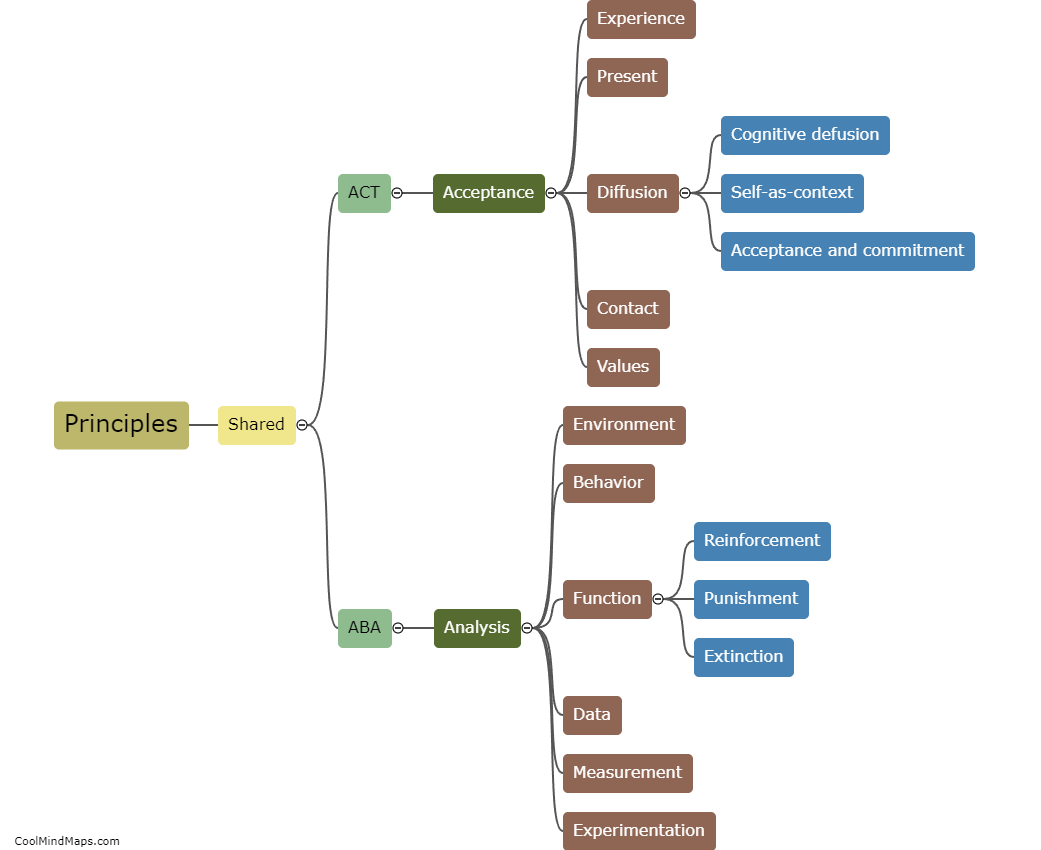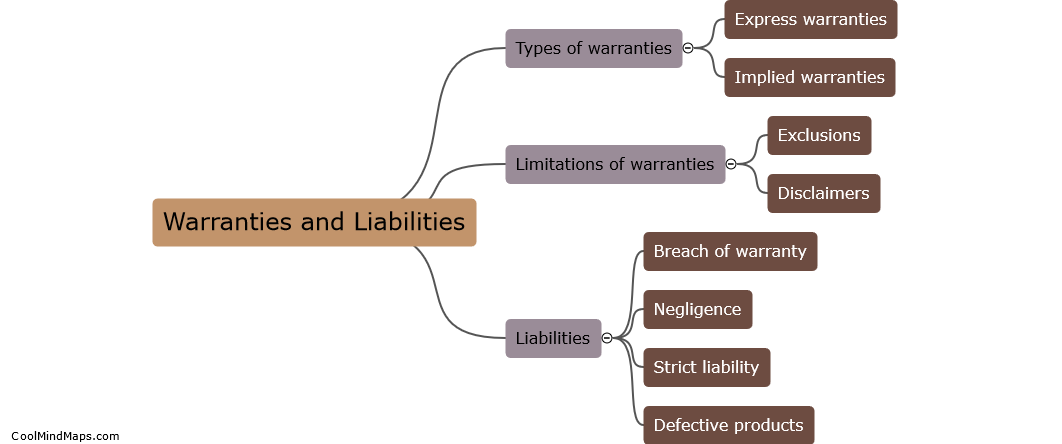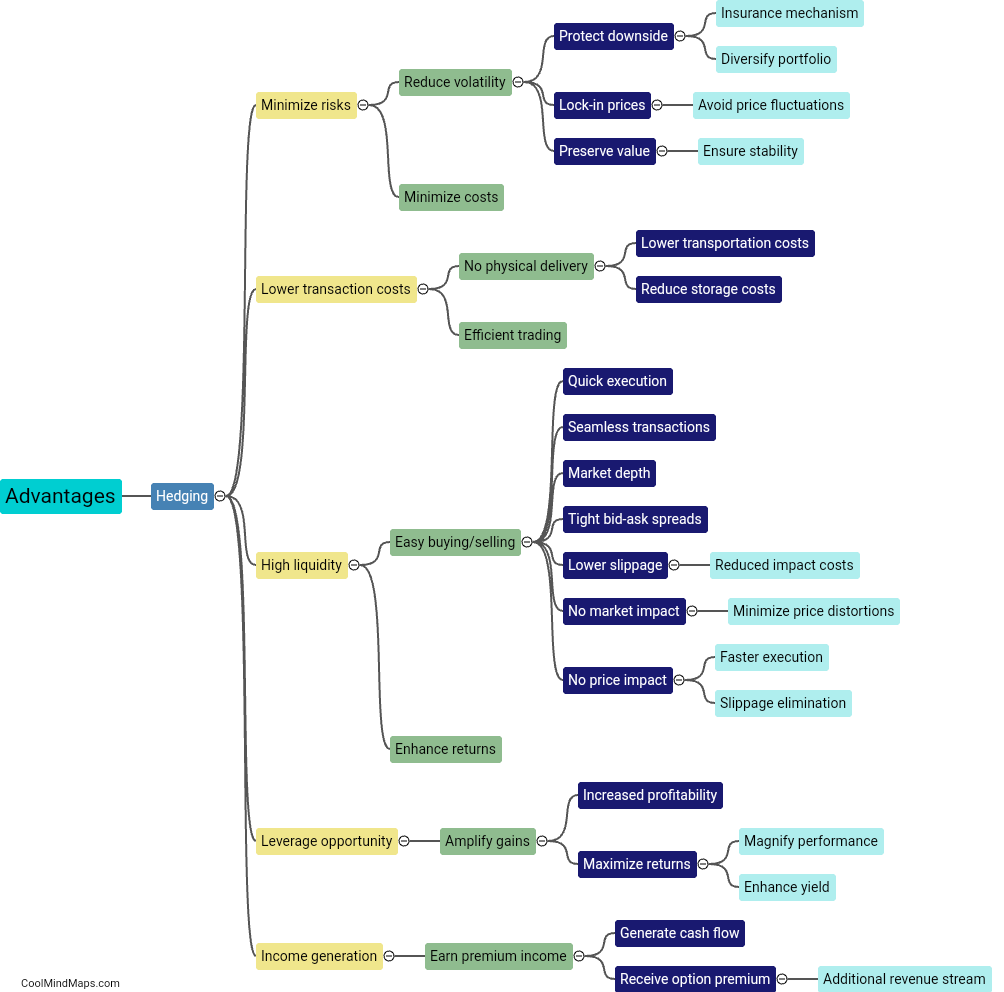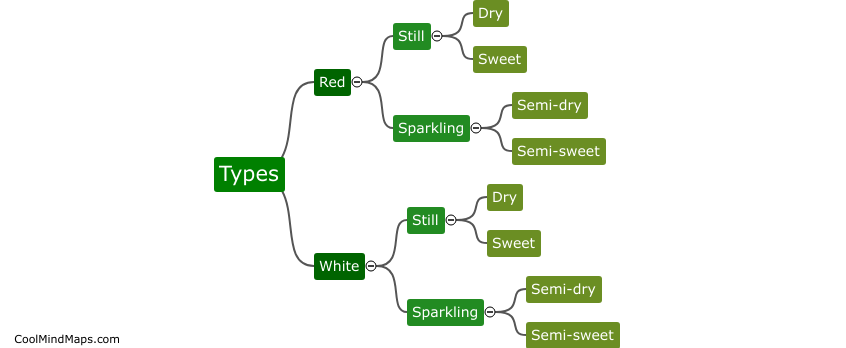How does ACT complement ABA in therapy?
ACT (Acceptance and Commitment Therapy) complements ABA (Applied Behavior Analysis) in therapy by focusing on acceptance, mindfulness, and values-based behavior change. While ABA primarily uses behavior modification techniques to shape desired behaviors, ACT emphasizes acceptance of one's thoughts and feelings, and teaches individuals to observe and detach from them. By incorporating mindfulness practices, ACT helps clients develop psychological flexibility, which enables them to engage in value-driven actions and adapt to the challenges they face. This synergy between ABA and ACT allows therapists to create a comprehensive therapeutic approach that addresses both behavior modification and the emotional well-being of individuals, resulting in more comprehensive and effective therapy outcomes.
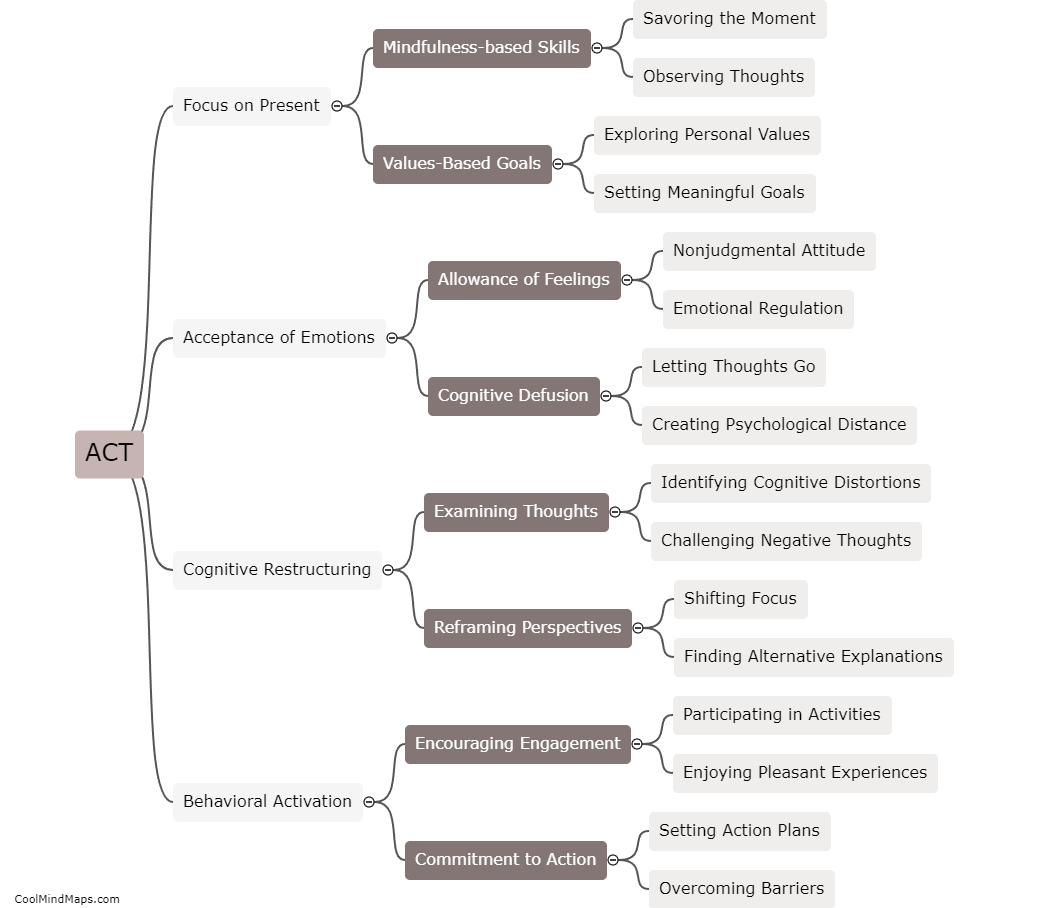
This mind map was published on 22 January 2024 and has been viewed 88 times.





